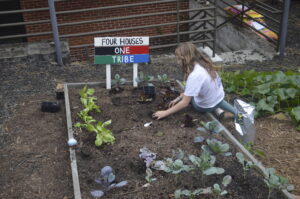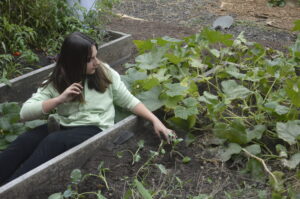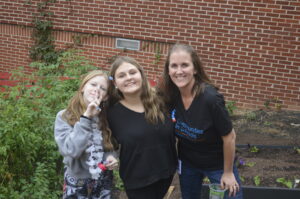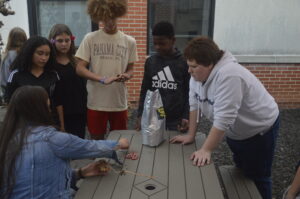Royston, GA
For Cole and Nicole Roper, agriculture isn’t just an industry they work in, it’s a way of life, as they work to grow sweet corn, poultry, and cattle. It’s a lifestyle they wouldn’t trade for the world and it’s a lifestyle that has helped them earn the title of 2023 Georgia Farm Bureau Excellence in Agriculture Award winners – an award they competed for at this year’s Young Farmer and Rancher conference that’s awarded to a member for their involvement with Farm Bureau and their community.
“My love for agriculture began at a very young age with my grandfather; riding the tractor with him and being on his cattle operation and him growing a big garden. He originally taught me how to grow vegetables and sweet corn. When I got into high school, my agriculture teachers encouraged me to grow a small crop of sweet corn for my SAE project. When I did that, I saw that I could make a little money, so I just continued to grow my operation. Through the past 10-12 years, we have grown Cole’s Sweet Corn to over twenty acres of fresh picked sweet corn. We pick everything. We pick fresh, daily. It’s hand-picked. That’s sort of what sets us apart from others that are around us,” says Cole.
As much as they love being on the farm, they know that there’s work that needs to be done elsewhere, which is why they find it essential to advocate for the ag industry.
“Advocating for agriculture is essential to not only what we do here on our farm, but what every consumer does. They need to know that the food they buy in the grocery store where it comes from, they need to know how it’s processed, how it’s grown, so that they can understand what goes into it. Not everybody realizes that their corn that’s grown is not grown at Walmart or it’s not grown at Ingles,” says Nicole. “It actually is grown on a physical farm. So, being able to advocate for agriculture will help us continue agriculture for the next generation. Our daughter, who’s two years old, we would like her to be involved in agriculture and if we don’t advocate for what we do, some people are going to try to shut it down. So, we’re just really passionate about educating the consumers about our product, but also about agriculture in general.”
The Ropers will now head to Salt Lake City where they’ll be competing for national recognition at this year’s annual AFBF Convention – an opportunity they say is an honor to get to represent their state, county, and operation in this capacity and are ready to give it their all.
“We are very excited and beyond belief proud to be able to represent the state of Georgia in Salt Lake City. Growing up, I was taught by some pretty competitive ag teachers and when I go to a contest, whether it’s region, state, or nationals, I’m preparing to win and we go to win and we’re going to try our best and leave it all on the table in Salt Lake City,” says Cole.
By: John Holcomb





